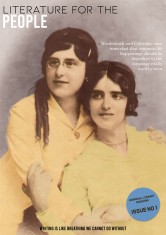 16/2/2019
16/2/2019
Following the example of the great romantic poets, Fenech Gonzi is imprisoned by feelings of oppression and his thirst after the freedom of imaginary worlds which only his poetry can provide.
(Review of ten poems published in Kaleidoscope of Verse ’76, UK, by Raymond Cassar MA, Sunday Times of Malta January 2, 1977)
Then comes the division with ‘Love’ as its title. The poet wishes to be given the chance to express his love, but today the word is very much misused. So the poet’s love is one that hurts, because it is a love which is not exchanged.
(Book Review on Within the Edges of Immortality published by ProMarketing International, Malta, The Malta Independent on Sunday, April 4, 1993)
His versatility both of style and themes is evident … the unusual descriptions of nature, reminiscent of Robert Browning is astonishing in one so young.
(Review on Within the Edges of Immortality by Josephine Zarb, The Times of Malta, April 1978)
Raymond Fenech Gonzi ghandu pinna li taghgen sew il-kelma li ssawwar f’Versi ghonja li jixraq li jinqraw aktar minn darba biex wiehed jixtarrhom ha jasal ma’ genb il-poeta.
(Rivista minn Francis Galea fuq il-ktieb ta’ poezija, Within the Edges of Immortality, f’Pagna Letteratura, Torca il-Hadd, Magazin, April 1994)
When dealing with human emotions, the poetry of Raymond Fenech Gonzi brings to the fore the force behind them. Man’s continuous struggle with these hidden forces inside and outside him become the nourishment of the soul.
(Foreword for Within the Edges of Immortality by Adrian Stivala May, 1992)
First is the poet’s initiation, the novitiate of his spiritual quest. Poems here deal with his early world explorations as a thinking, living being. Like Whitman’s child, Fenech Gonzi goes forth in the original venture of naming a world that is thus reborn with the creative might of his words. There are crayon paintings of love inaugurations sketched with a naturalism that hurts the flesh: cherished erotic memories, vivid, vaguely preserved until they are resurrected in a poem. Such is a passionate affair later seen, in agony, dispensed to someone else. Once and again, there is the relived episode of losing innocence, always thrilling –here with particular intimacy, sometimes a retell of somebody’s experience, occasionally paralleled and inlayed into bedtime tales. Now and then, the poet looks from a distance, events rushing by, a whole life in a glimpse frozen into the magic of a poem, fast passing seasons in the realization and understanding of boundaries between the allegedly real and “reality”.
(Foreword by Professor Manuel de Jesús Velázquez León on Blood Lines (poetry collection) published by SandCrab Books, Cuba, May, 2011)
They arrived this morning and, since then, I have happily spent time dipping in and out of each. You write eloquently and am impressed with both books, on the basis of my reading to date, not least because of how you subvert reader’s expectations. Reference to: The Incident of the Mysterious Priest & Other Stories (short story, essay and article on true supernatural experiences) and Growing with the Shadows (poetry collection) both published by Adelaide Books, New York, USA and Lisbon, Portugal in 2017 and 2018 respectively.
(Jeff Scott, M.A., Creative Writing, Book Publicist. Platypus PR, UK, February, 2019)
The Writing style, the flow of the stories, introduction and development of the complex characters, intense and multilayered plots with exciting twists and turns, original setting of each of the stories – everything about this collection of short stories and essays is a compliment to a wordsmith’s craft.
(Blurb on The Incident of the Mysterious Priest & Other Stories by Stevan V. Nikolic, Editor-in-Chief, Adelaide Literary Magazine & Adelaide Books, New York, USA, June, 2017)
In my initial reading of Growing With the Shadows , most of all I visualized a man of infinite suffering, greatly affected by Life or Death, nonetheless without losing hope and that ceaseless struggle towards the light. As Pablo Neruda, the great Chilean poet, said: “They tell me: you belong in the shadows. Perhaps, perhaps, but I walk towards the light”.
Many times, Fenech Gonzi is a man bordering on the grim reaper’s realm, yet also a concerned environmentalist worried about the relentless action of his fellow men against nature and the conservation of places, as well as the lost values, both material and spiritual. He shows himself to the world as a down-to-earth time traveler who seeks peace and an escape valve in his naturalistic, soaring poetry that I now compare to his own simile in one of his Tanka poems, Waves “like a brandished scimitar”.
I was enraptured by Fenech Gonzi's poems because he took me on a time traveling experience at roller-coaster speed. A cursory read of the book would lead any impromptu reader to want to separate some poems from others but after you read them all, you realize that it cannot be done: the poems stand and flare on their own right as a necessary and sweeping monolithic comet. They belong with each other, and with the author. Each seems to have been carved with Fenech Gonzi´s blood, entrails and experiences of a sensitive poet slit by what he sees and feels, and his need to display things as they are, crude and raw, presenting characters and events as they happened.
(Extract from the foreword by Associate Professor Miguel Angel Olive Iglesias, University of Holquin, Cuba)


